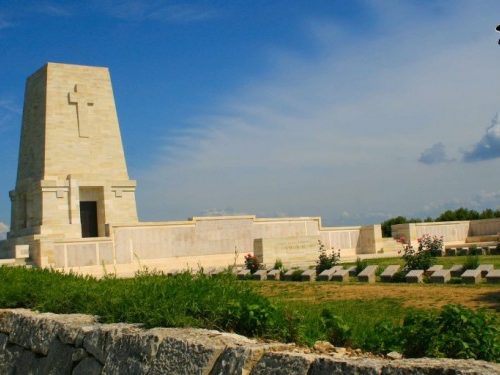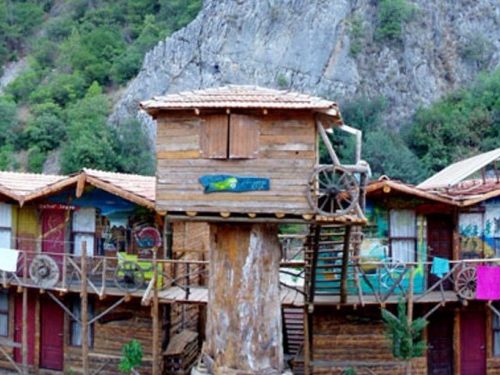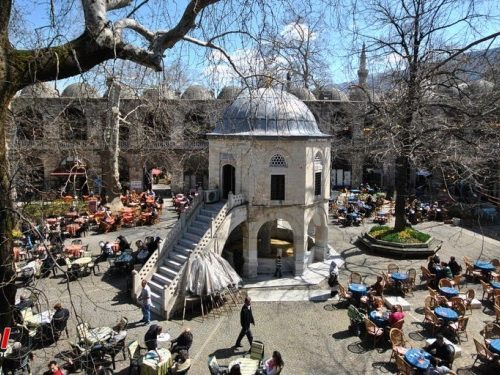The Anatolia region of Turkey is known to be one of the oldest continuously inhabited areas in the world with evidence of human existence dating back to an estimated 7,500-6,000BC. It has been estimated that the legendary city of Troy, located to the northwest of Anatolia, dates back to 3,000BC.
A tribe called the Hattians inhabited the area in around 2,300 BC. Subsequently an Indo-European civilisation called Hittites came to Anatolia and absorbed the Hattians forming the first major empire in the area from 2,000-1,300 BC. The Hittites themselves were colonised by the Assyrians and later the Phrygians.
In around 1,200 BC the coastal areas of Anatolia were settled by Aeolian and Ionian Greeks. They constructed cities and trading posts such as Epesus, Smyrna (Izmir) and Byzantium (Istanbul).
During the sixth and fifth centuries BC the Persian Empire conquered the area before it fell to Alexander the Great in 334 BC. Anatolia was divided into a number of smaller kingdoms, all of which came under Roman control by the middle of the first century BC. After the fall of the Western Roman Empire, Emperor Constantine made Byzantium the capital of the new Roman Byzantium Empire.
The civilisation known as the Seljuks, who came from the Caspian and Aral Sea areas, began migrating to the area in the 10th century AD. Following the Battle of Manzikert, eastern Anatolia fell under the leadership of the Anatolian Seljuk Senate, a part of the large Seljuk Empire. In the 13th century the Seljuk Empire was defeated by the Mongols and in its wake, over the following 200 years, the Turkish principality governed by Osman I evolved into the Ottoman Empire.
In the 16th and 17th centuries, The Ottoman Empire pushed north towards central Europe through the Balkans, and to the south through Saudi Arabia. The Empire also competed against the Spanish, Italians and Maltese to control the Mediterranean sea, and against the Portuguese to control trading posts and maritime routes in the Indian Ocean.
Following two centuries of steady decline in influence, the Ottoman Empire entered WWI on the side of the central powers and was ultimately defeated. Allied forces occupied Constantinople and Smyrna (now Istanbul and Izmir) after the war. This gave rise to the Turkish national movement and the Turkish War of Independence was waged against Greece, Armenia, the United Kingdom, Italy and France to expel them from Anatolia. By 1922, the occupying forces had been expelled and the newly formed Turkish parliament officially ended Ottoman rule by abolishing the Sultinate.
The Treaty of Lausanne in July 1923 led to international recognition of the Republic of Turkey as a sovereign state. The republic was officially proclaimed in October 1923 and Ankara was established as its new capital city.
Mustafa Kemal became the Republic’s first president and implemented a number of reforms aimed at increasing the new nation’s secular stance. These included the 1934 Surname Law, which required all citizens of Turkey to adopt a surname.
Turkey remained neutral during WWII but ceremonially entered on the side of the Allies in 1945. It became a member of the United Nations in 1945 and a member of NATO in 1952, participating in the Korean War and firmly opposed to Soviet expansion.
The single party system was abolished in 1945, followed by a number of difficult decades punctuated with numerous military coups d’etat during the transition to a multi-party system. Since 1984, the Turkish government has been at odds with the PKK (Kurdistan Worker’s Party) over the right to an autonomous Kurdistan and more rights for Kurds within Turkey. The armed struggle has so far claimed 40,000 lives and still continues today.
It is said that three major kinds of cuisine exist in the world; Turkish, Chinese, and French. Fully justifying its reputation, Turkish cuisine is always a pleasant surprise for the visitor.
Turkish people are passionate about food; indeed, Turkish cuisine is world renowned for its diversity and flavour, drawing influences from all corners of the former Ottoman Empire, and each region today boasting its own specialities.
Generally, food is spicier and richer the further south and east you travel, whilst in the west, olive oil, seafood and vegetable dishes are more prevalent.
Food in Turkey is first and foremost a social occasion and always to be enjoyed with gusto. From home cooked meals shared by family and friends to symbolic religious or celebratory feasts and the street theatrics of roadside sellers, food is closely intertwined with the fabric of society.




